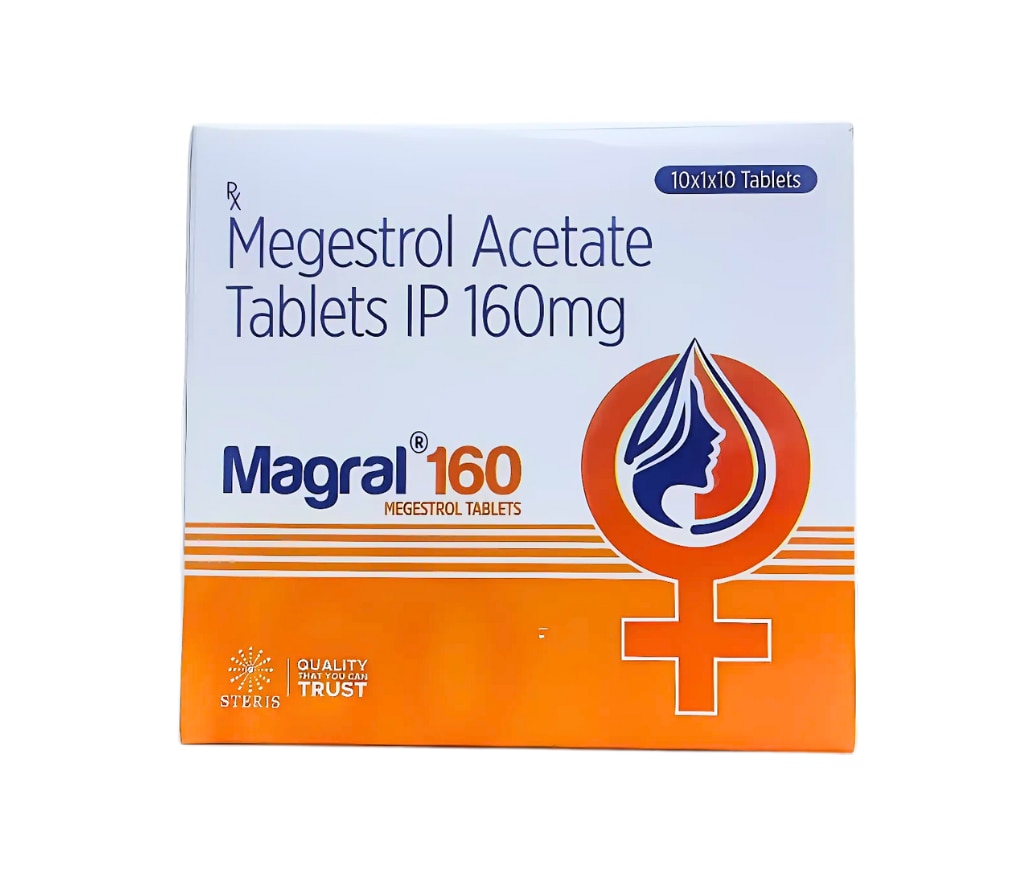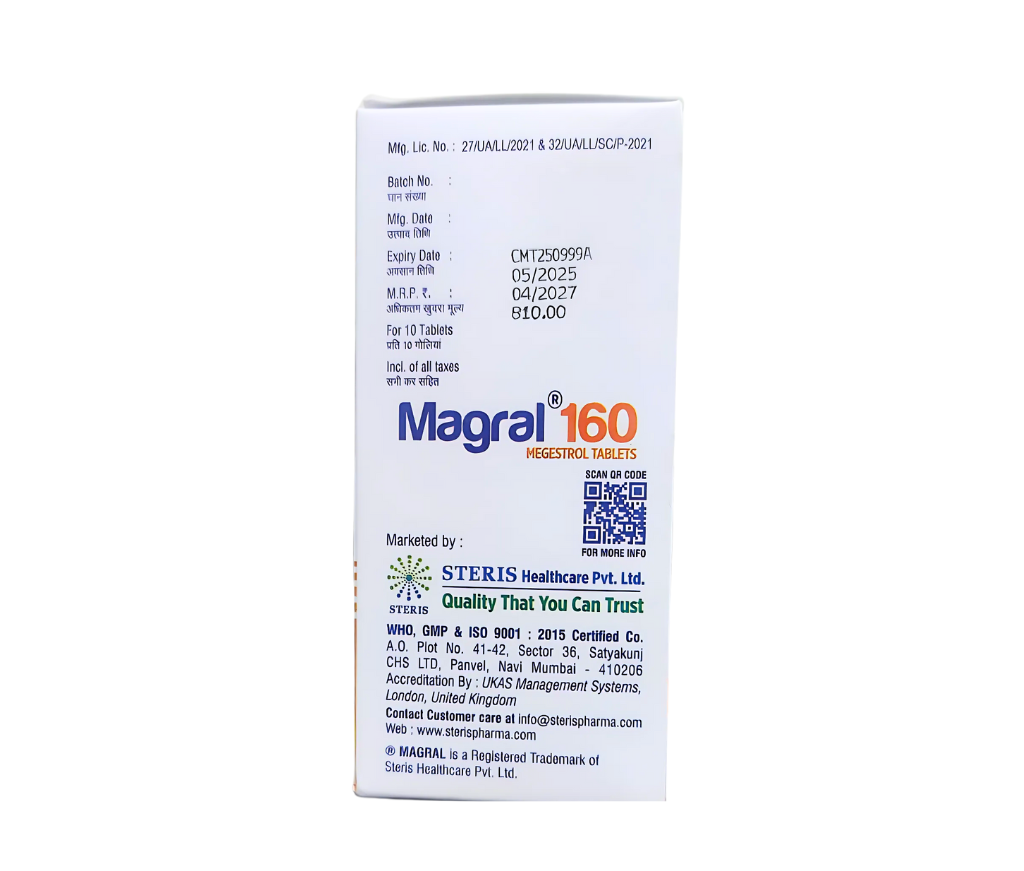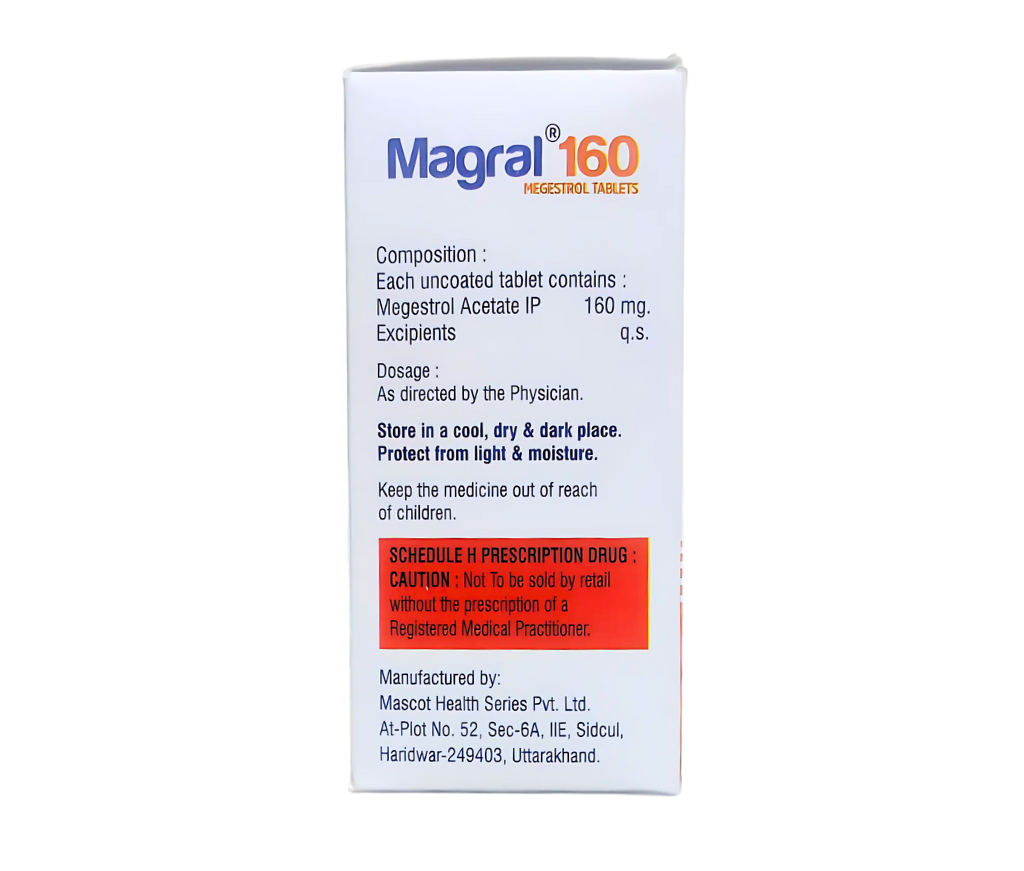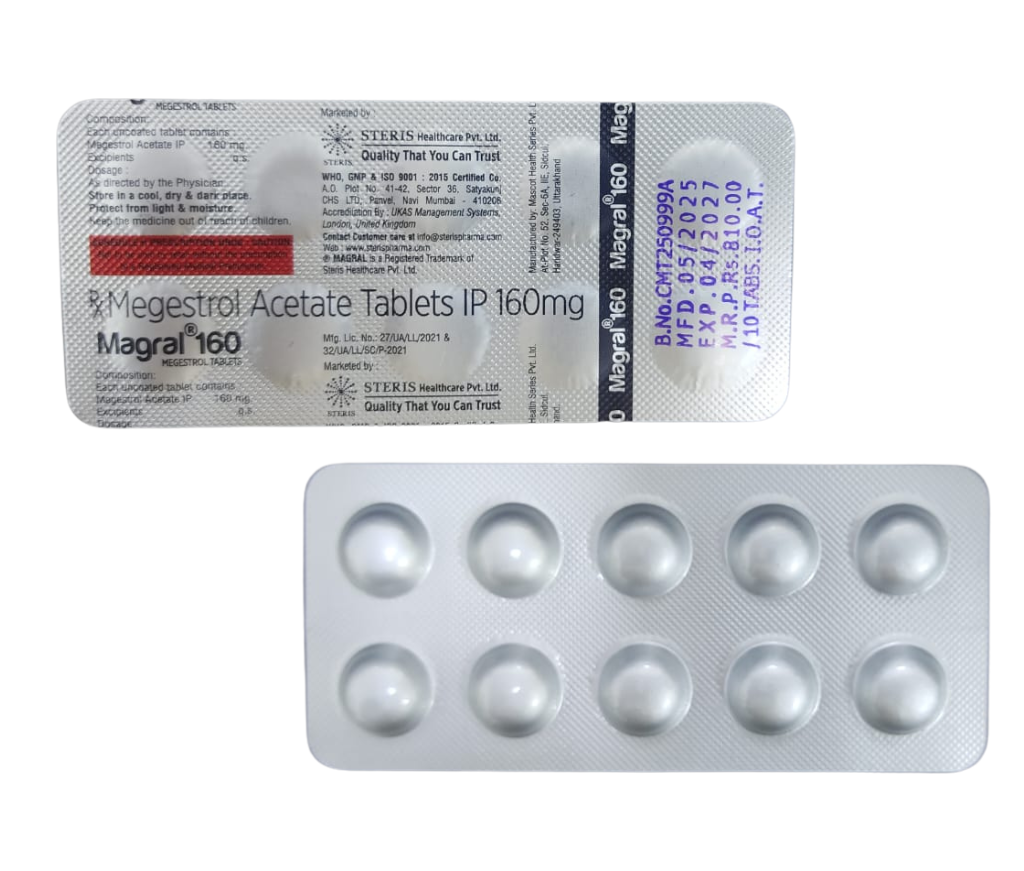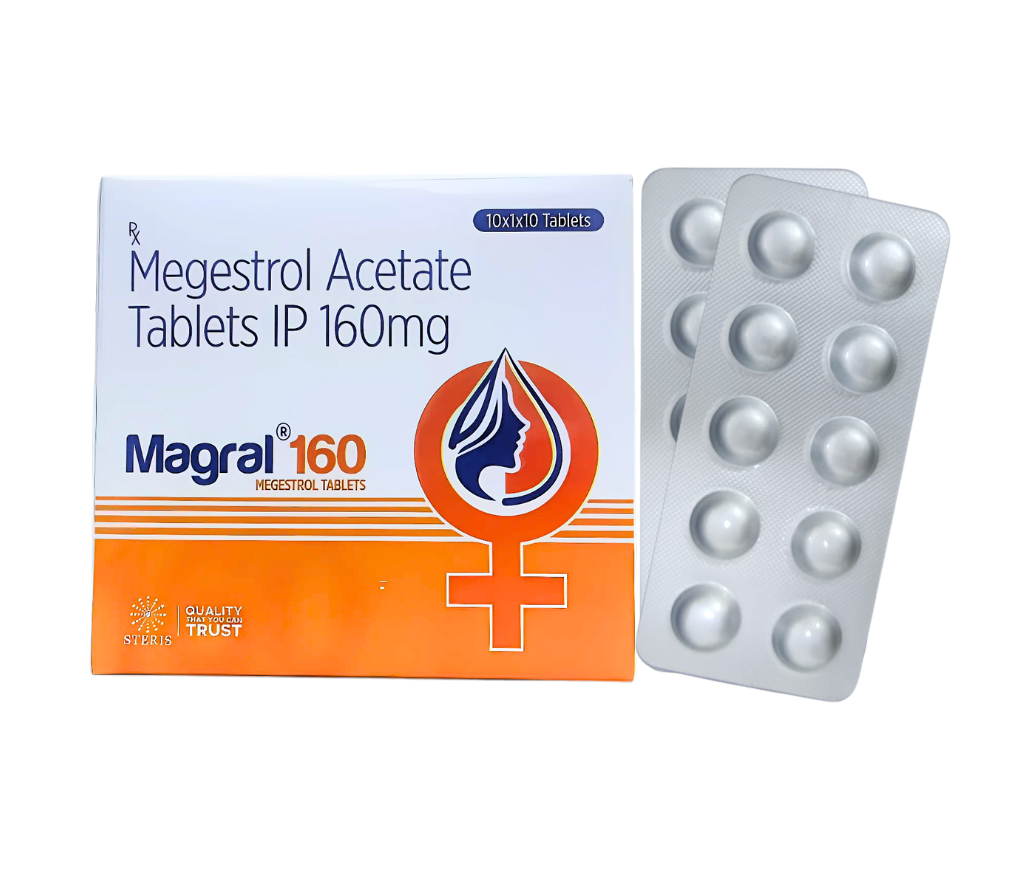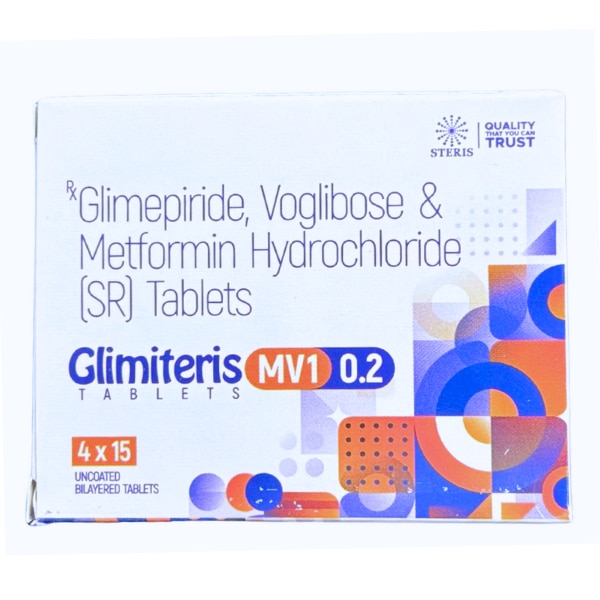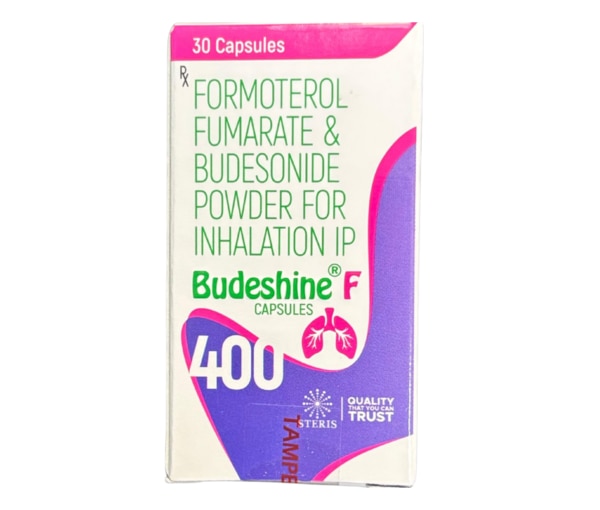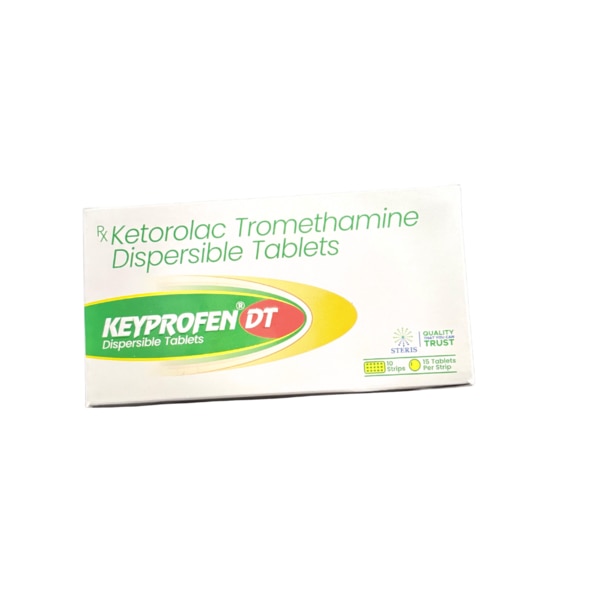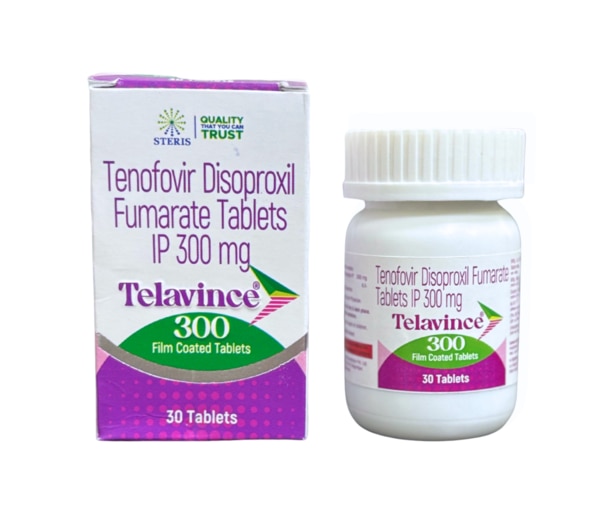Description
Product details
MAGRAL 160 is a pharmaceutical medication containing megestrol acetate 160 mg, a synthetic progestin known for its potent antineoplastic and appetite-stimulating properties. This drug is primarily prescribed to manage significant health challenges such as unexplained weight loss, anorexia, and cachexia, especially in patients suffering from chronic conditions like cancer or AIDS. Additionally, megestrol acetate functions as a hormone therapy agent employed in the treatment of certain hormone-sensitive malignancies. Its dual action both supports tumor management and improves patients' nutritional status by stimulating appetite and promoting weight gain, thereby enhancing overall quality of life. The drug is regarded as a crucial option in oncology and palliative care for managing complex conditions related to hormone-dependent cancers and severe wasting syndromes. What is MAGRAL 160? MAGRAL 160 is an oral medication formulated with megestrol acetate 160 mg, a synthetic progestin hormone derivative. It works primarily by modulating hormone receptors and altering hormone levels that influence the growth of hormone-responsive tumors such as breast and endometrial cancers. Apart from its antineoplastic action, it stimulates appetite by acting on the hypothalamic centers responsible for hunger, helping patients suffering from severe weight loss regain a healthy appetite and weight. Uses of MAGRAL 160 To treat hormone-dependent cancers, specifically advanced breast cancer and endometrial cancer. To stimulate appetite and promote weight gain in patients experiencing anorexia, cachexia, or unexplained severe weight loss related to chronic illnesses like cancer or AIDS. To manage wasting syndromes that lead to malnutrition and significant weight loss. To serve as an antineoplastic agent in hormone-sensitive malignancies. In short, MAGRAL 160 is primarily used to treat anorexia and cachexia or serious unexplained weight loss and is also used as an antineoplastic agent to treat certain types of malignancy. Side Effects of MAGRAL 160 Weight gain (often desirable but can be excessive) Fluid retention and edema (swelling) Nausea and vomiting Diarrhea or constipation Vaginal bleeding or spotting in women Fatigue, weakness, and insomnia Headache and dizziness Increased risk of blood clots (deep vein thrombosis or pulmonary embolism) Hormonal imbalances, such as decreased sex hormone levels, which can lead to sexual dysfunction or bone density loss Allergic reactions including rash or itching Patients should report severe or unusual symptoms, especially signs of blood clots such as limb swelling, chest pain, or sudden shortness of breath, immediately to their healthcare provider. Precautions before Using MAGRAL 160 Inform your doctor if you are pregnant, breastfeeding, or planning to conceive as MAGRAL 160 is contraindicated in pregnancy. Disclose any history of blood clots, cardiovascular diseases, liver or kidney impairment. Patients with diabetes should monitor blood sugar closely as megestrol acetate may cause hyperglycemia. Avoid sudden discontinuation without medical advice to prevent potential hormonal withdrawal effects. Regular monitoring is required, including hormone levels and blood tests, to assess efficacy and safety during treatment. Use cautiously in patients at risk for deep vein thrombosis or pulmonary embolism due to increased clotting risks. Drug Interactions: What Drugs Interact with MAGRAL 160? CYP3A4 enzyme inducers (e.g., rifampin, phenytoin) may reduce the effectiveness of megestrol acetate by increasing its metabolism. Concurrent use with blood thinners (anticoagulants) requires careful monitoring as MAGRAL 160 might influence clotting parameters. Combining with drugs that affect hormonal pathways, such as other hormonal therapies or corticosteroids, may alter treatment outcomes. Interactions with diabetes medications might necessitate dose adjustment due to potential effects on blood sugar control. Careful medical supervision is necessary when used with immunosuppressants or other chemotherapy agents to avoid additive side effects or altered drug levels. Conclusion MAGRAL 160, containing megestrol acetate 160 mg, is a clinically validated medication widely used to manage complex conditions such as hormone-dependent cancers as well as severe weight loss due to anorexia and cachexia. Its unique ability to act both as an antineoplastic agent and an appetite stimulant makes it invaluable in improving patient outcomes, nutritional status, and overall quality of life. Patients prescribed MAGRAL 160 should adhere strictly to their healthcare provider’s instructions and report any adverse effects promptly. This medication should always be used under medical supervision to ensure optimal benefits and minimize risks.


